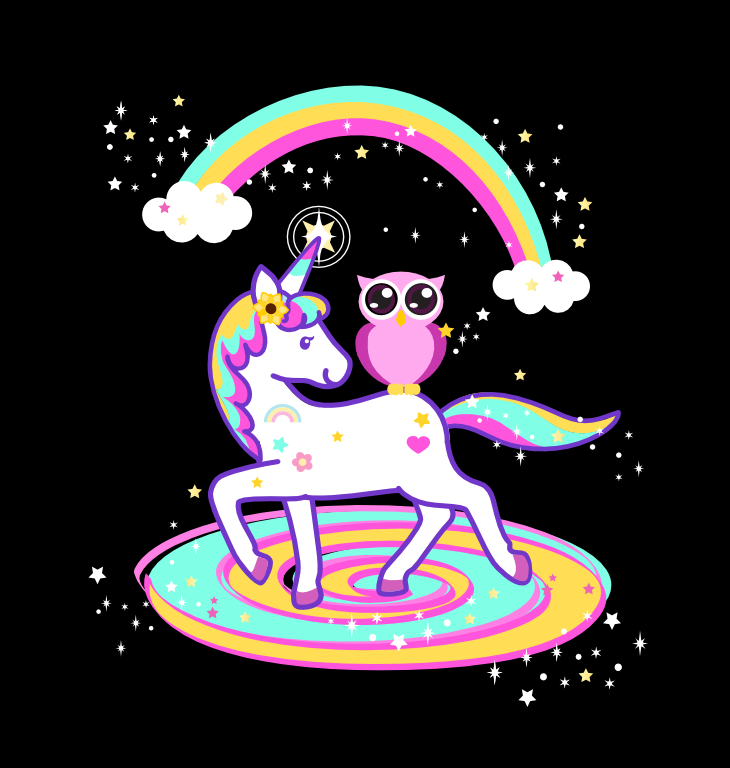Two Challenges For OWL
Bijan Parsia
bijan.parsia@manchester.ac.uk
A Brief History of OWL
Challenge 1: Wherewithal
Do not feed (or play with) the trolls
A (Small) Goal
OWL 1.1 extends the W3C OWL Web Ontology Language with a small but useful set of features that have been requested by users, for which effective reasoning algorithms are now available, and that OWL tool developers are willing to support. The new features include extra syntactic sugar, additional property and qualified cardinality constructors, extended datatype support, simple metamodelling, and extended annotations.
— OWL 1.1 Overview
A (Small) Goal
New (Small) Goal
Let's do small fixes and rounding outs of some of the syntaxes as community group reports.
This should be easy!
New (Small) Goal

The London Eye is bigger than my stomach
Do we have the
- Social
- Material
- Technical
conditions to make a significant change to OWL?
Changing reality
The aide said that guys like me were "in what we call the reality-based community," which he defined as people who "believe that solutions emerge from your judicious study of discernible reality." ... "That's not the way the world really works anymore," he continued. "We're an empire now, and when we act, we create our own reality. And while you're studying that reality—judiciously, as you will—we'll act again, creating other new realities, which you can study too, and that's how things will sort out. We're history's actors…and you, all of you, will be left to just study what we do."
Minimal Technical Conditions
- We need
- an idea (rules! time! units!)
- a technical proposal
- sufficient for implementation
- with evidence that we can implement
- a use analysis
- it must solve a problem in a way people will use
What do we need to build into the language?
Minimal Material Conditions
- Implementor effort
- OWL API (volunteer right now)
- Editors (ongoing Stanford efforts)
- Reasoners (spotty funding)
- User effort
- Things which don't get used suck
What's the role of funding in producing these efforts?
Social Conditions
Great actors or wider forces?
Will we see an OWL 3?
Prediction is difficult, especially about the future
- Not from the Old Guard
- Our moment has passed
- So, don't wait for us!
- The future certainly won't
The best way to predict the future is to invent it. — Alan Kay
Full Quote
Don't worry about what anybody else is going to do… The best way to predict the future is to invent it. Really smart people with reasonable funding can do just about anything that doesn't violate too many of Newton's Laws! — Alan Kay
But...
If I knew how to invent the future, we'd have flying cars or maybe jet packs — Bijan Parsia
Challenge 2: Evidence
A "Simple" Problem
Should a patient with chronic non-valvular atrial fibrillation be on prophylactic anti-coagulation therapy?
- Tons of research
- Strong consensus in guidelines
- Practice is not aligned
A "Simple" Problem
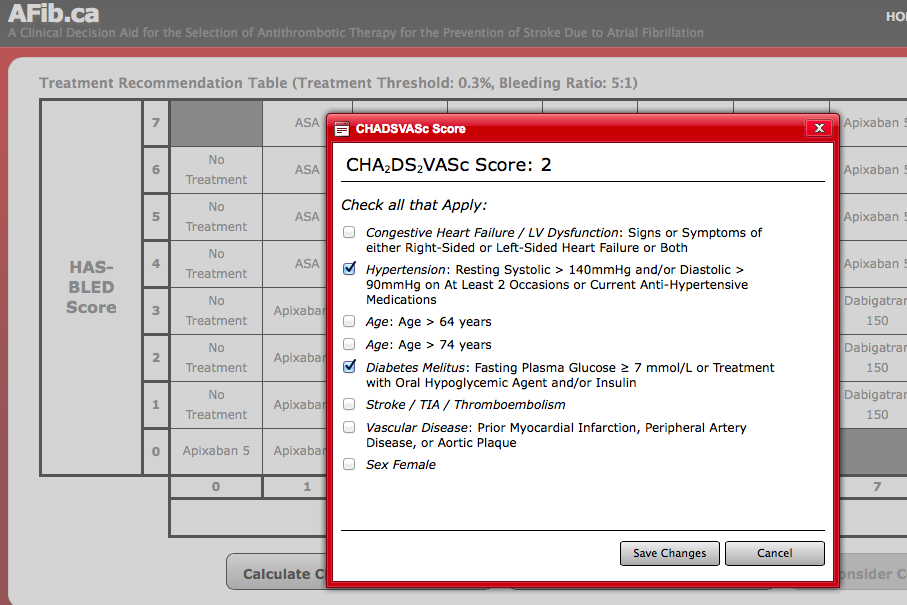
A "Simple" Problem
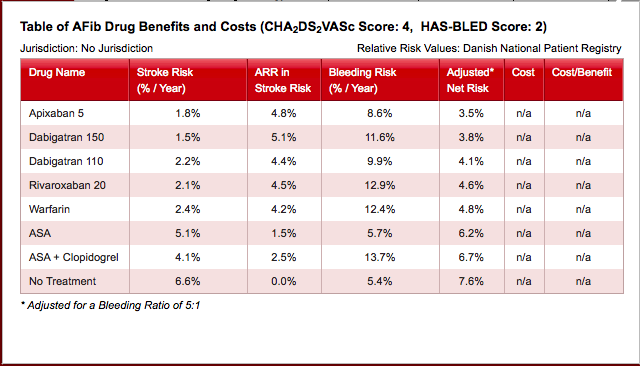
A Parameterisation
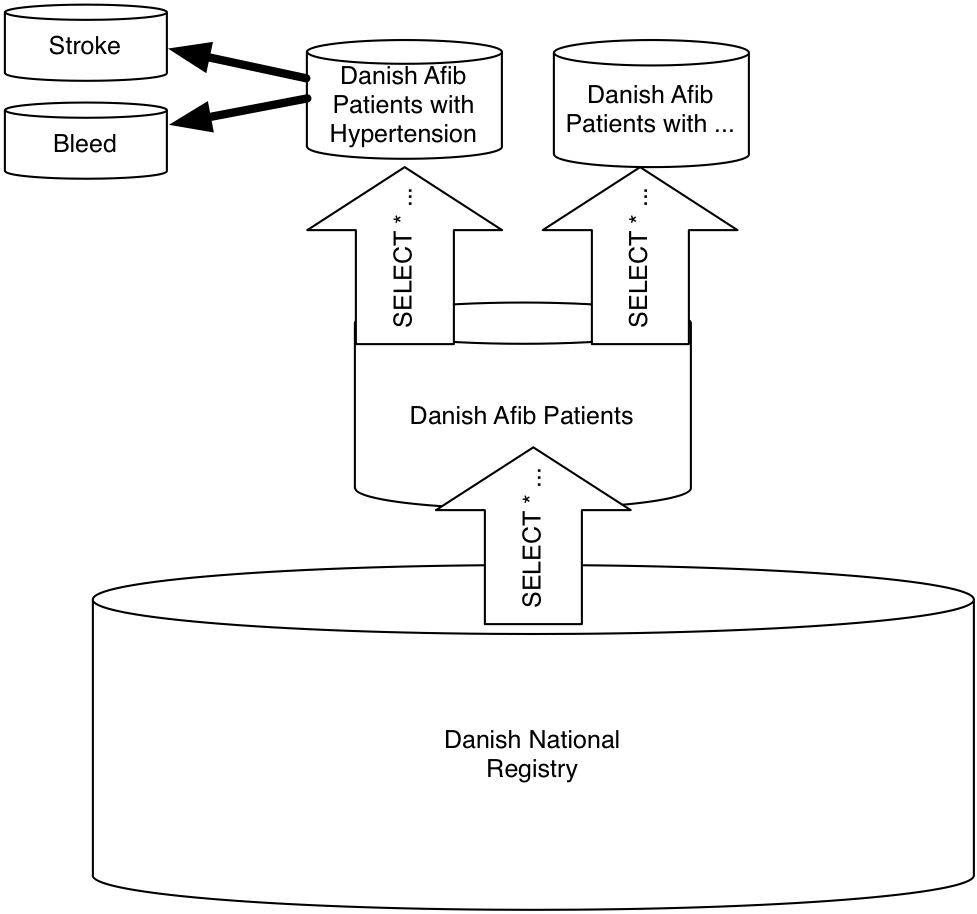
Another Parameterisation
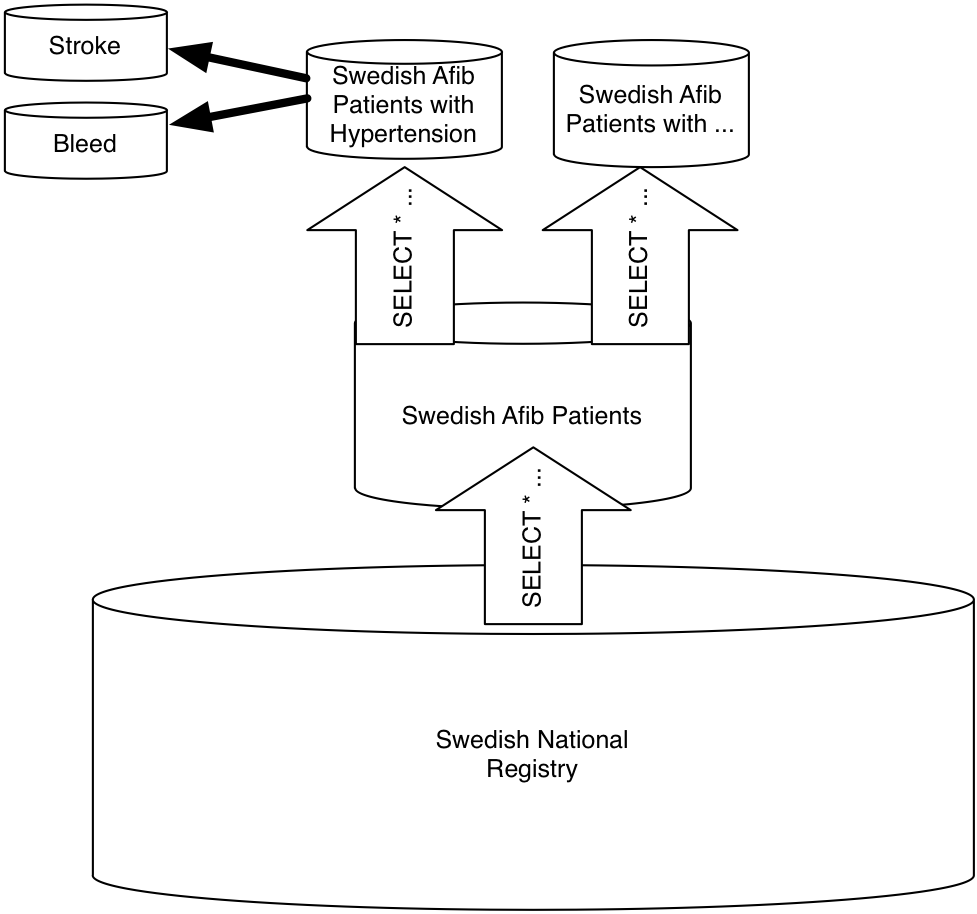
Changed?
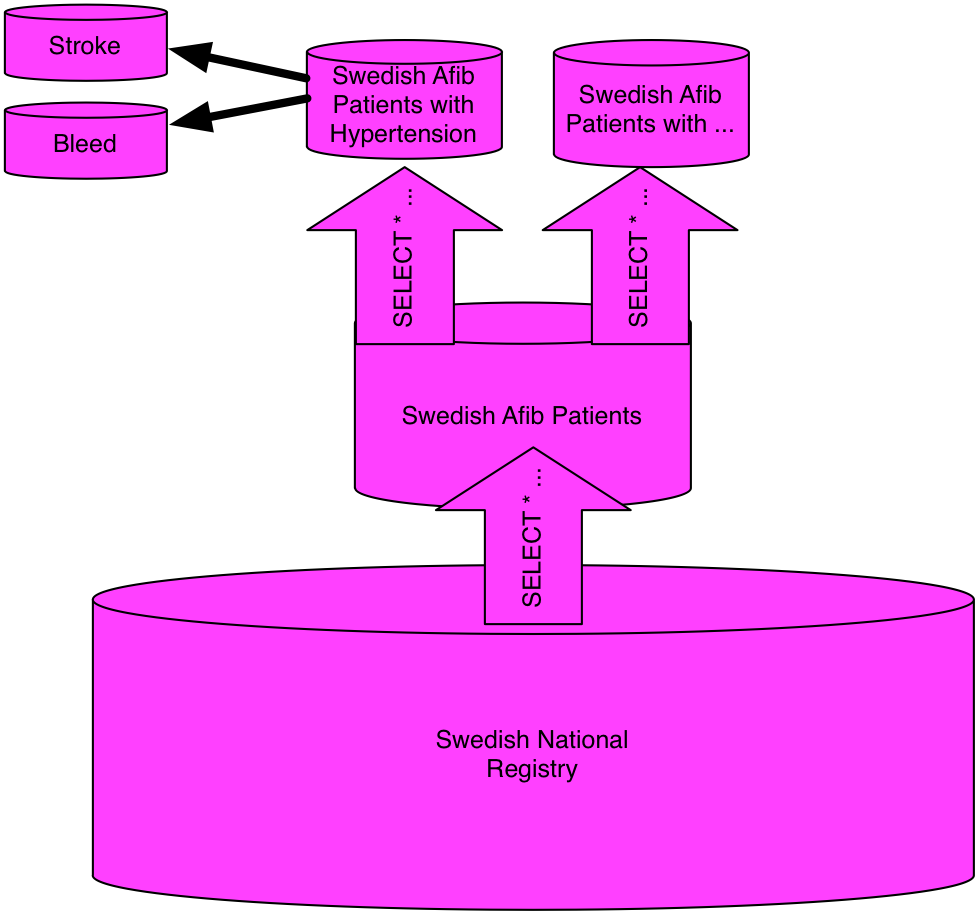
Can we build a Model?
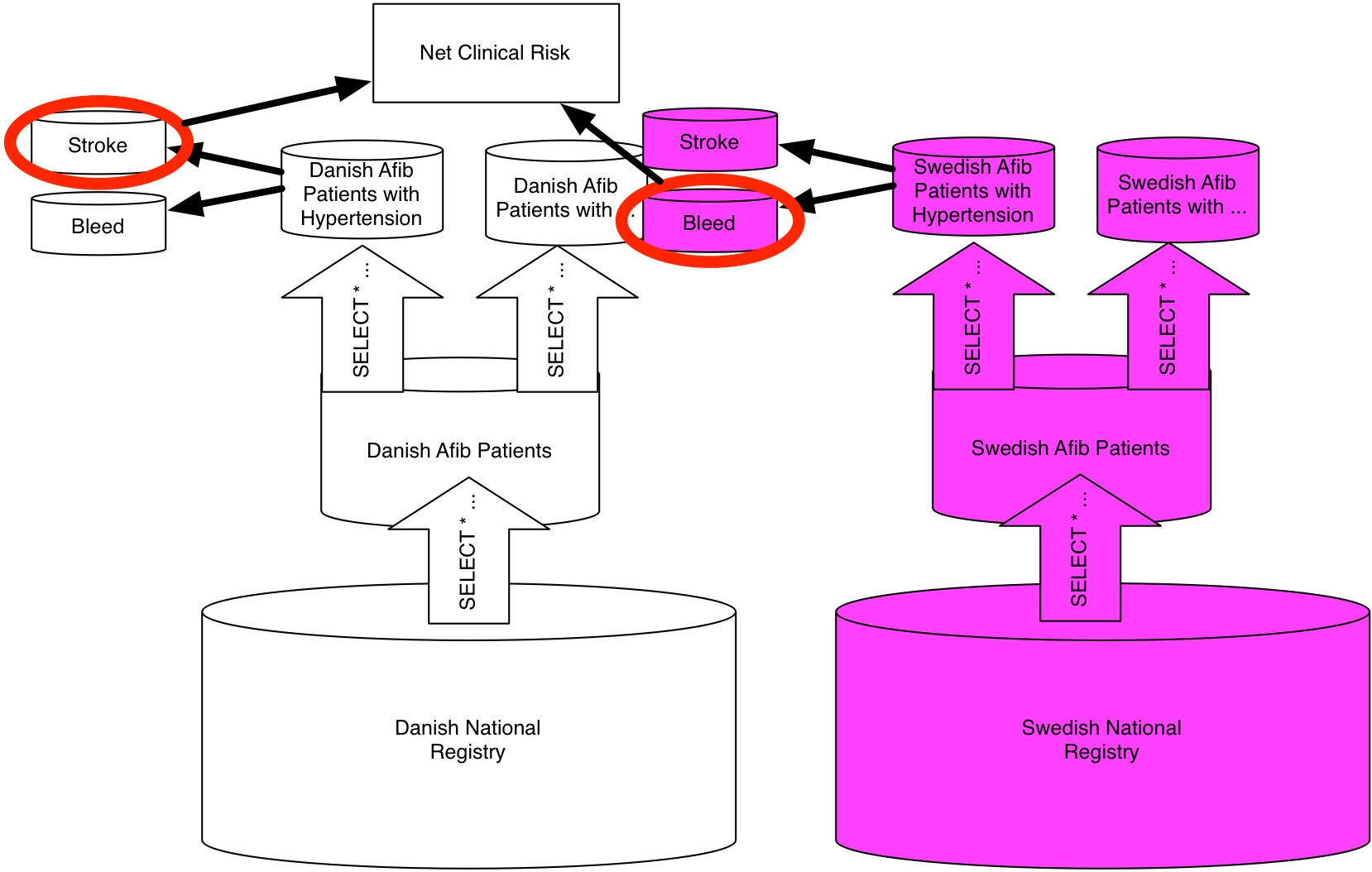
Thinking about details
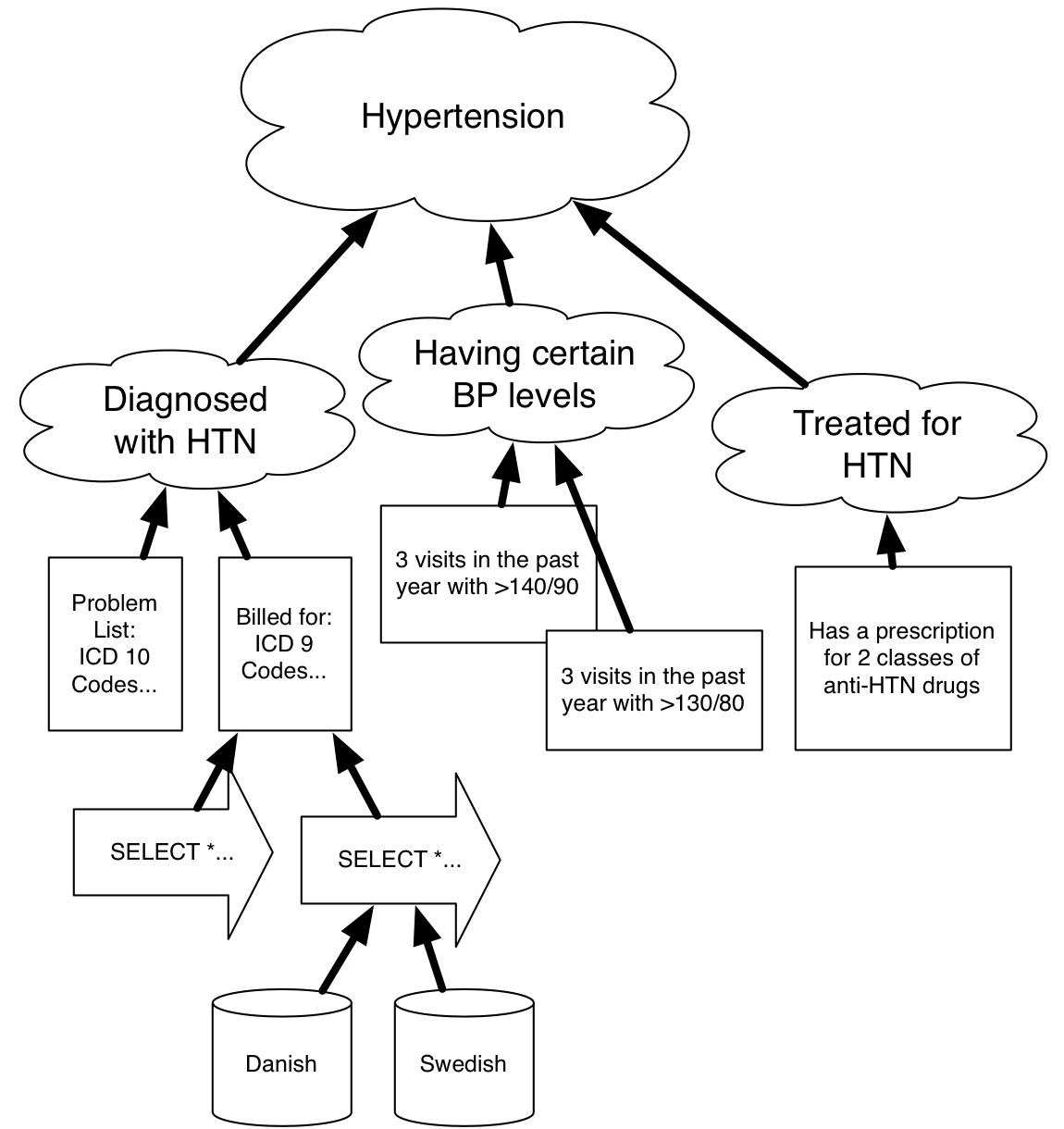
A Slogan
The future of data collaboration on the web is
- data disintermediation and
- analytics aggregation
A Slogan Explained
I want other people to
- get out of my way (data disintermediation) and
- help me out (analytics aggregation)
Data Disintermediation
Get out of my way
- Getting out of the way is hard!
- No such thing as raw data
- If it did exist it would be unusable
Analytics Aggregation
Help me out
- A promise of OWL
- Shared conceptual models
- A promise of ODBA
- Use your conceptual model to query your untouched data
This gives a foundation for working with data
Analytics Aggregation — What's missing?
Inference services!

What does success look like?
An extension to the OWL infrastructure that allows us to
- encode a conceptually and analytically complete description of two studies
- including the data
- align the conceptual structure of those ontologies
- infer a meta-analysis
Is this magic?

Not a solved problem
- I see (some of the) pieces
- OWL is ok for conceptual knowledge
- ODBA gets us closer to data
- Lots of cool ML stuff with OWL (see last year's keynote)
- I see missing pieces
- Integrating probability and OWL tricky
- Qualitative evidence
- People don't do what they can now (e.g., R) People keep neglecting the conceptual
